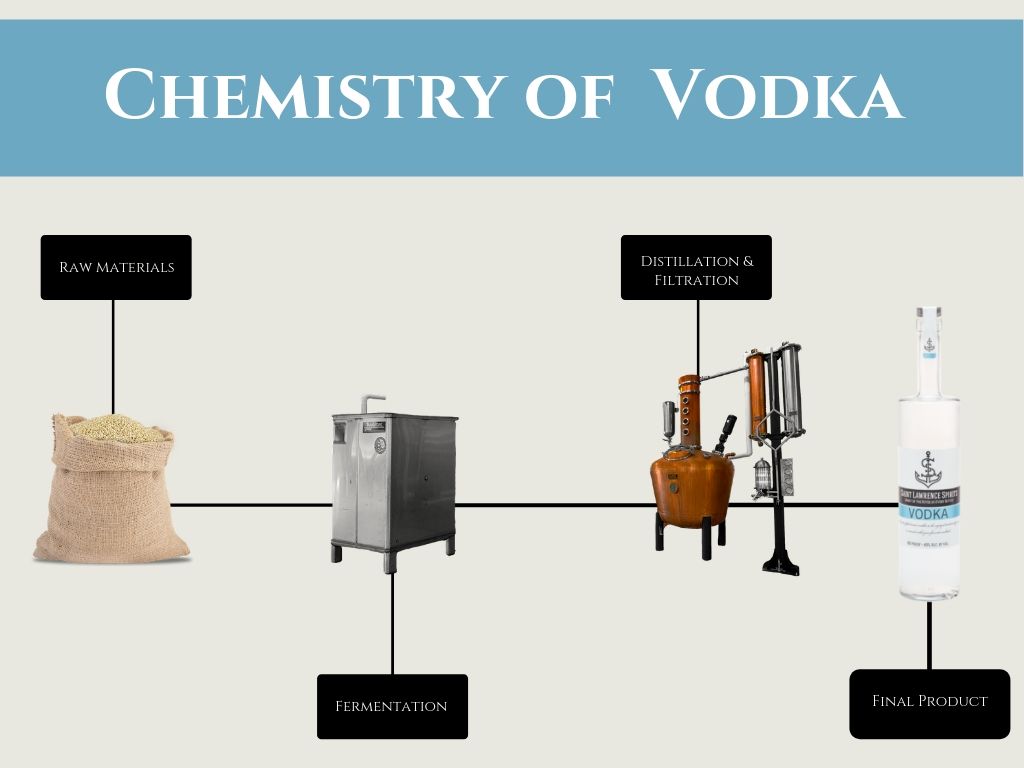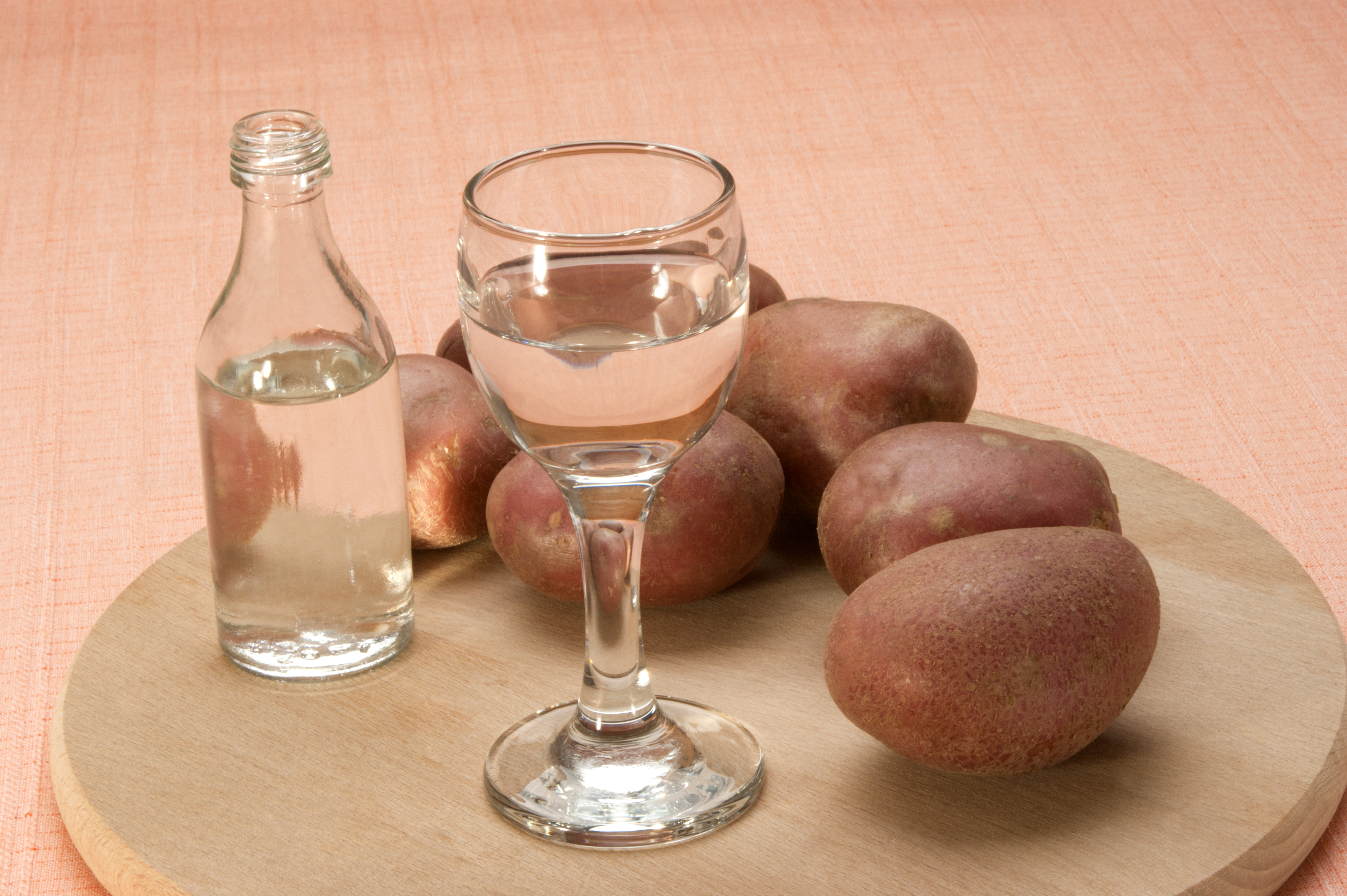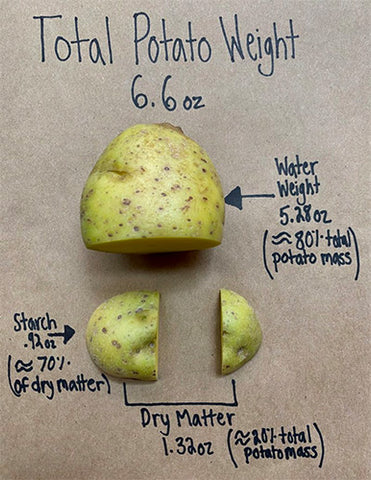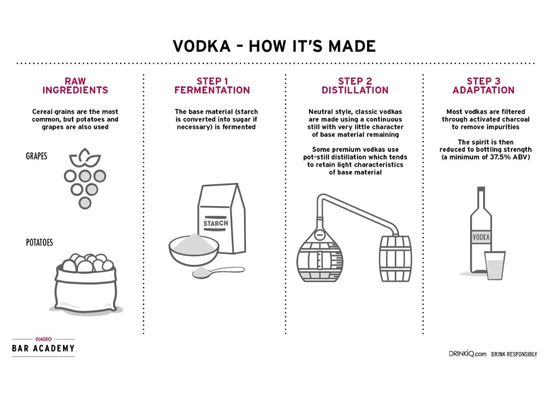Understanding Vodka Distillation Process

The distillation process is a critical step in vodka production, where impurities are removed, and the alcohol content is increased. The process involves heating the fermented liquid and collecting the vapor that rises. The vapor is then cooled and condensed into a liquid, resulting in a higher alcohol concentration. This process is repeated multiple times to ensure the vodka reaches the desired purity level. The distillation process plays a crucial role in defining the smoothness, clarity, and overall quality of the vodka. It is an essential step in creating a clean and crisp spirit that vodka enthusiasts appreciate.
Vodka Distillation Basics
Vodka distillation is a fundamental process in vodka production. It involves heating the fermented liquid and collecting the vapor that rises. The vapor is then cooled and condensed back into a liquid, resulting in a higher concentration of alcohol. This distillation process is typically repeated multiple times to ensure the vodka reaches the desired purity level. The goal is to remove impurities and create a clean and smooth spirit. The distillation process plays a crucial role in defining the clarity, smoothness, and overall quality of the vodka. It is an essential step in creating a high-quality vodka.
Common Misconceptions About Vodka Distillation
There are several common misconceptions about the distillation process of vodka that need to be debunked. One of the most prevalent misconceptions is that all vodkas are made from potatoes. In reality, vodka can be distilled from a variety of fermentable sources, including grains like winter wheat and corn. Another misconception is that the number of times a vodka is distilled determines its quality. While multiple distillations can contribute to a smoother taste, it does not guarantee a superior vodka. It is important to understand the facts and debunk these myths surrounding vodka distillation.
Vodka Ingredients: Potatoes Vs. Grains

Vodka can be distilled from a variety of ingredients, with the choice between potatoes and grains being the most common. Potato-based vodka production involves fermenting and distilling potatoes to create a distinct flavor profile. On the other hand, grain-based vodka is often made from crops like wheat, rye, or corn, which offer a smoother and more neutral taste. Both potato and grain vodkas have their unique characteristics, leading to different flavor profiles and preferences among consumers. It is this flexibility in ingredients that allows vodka producers to create a wide range of flavors and styles.
Potato-based Vodka Production
Potato-based vodka production involves fermenting and distilling potatoes to create a distinct flavor profile. The process begins by selecting high-quality potatoes and washing them thoroughly to remove any impurities. The potatoes are then cooked and mashed to release the starch, which is converted into sugar during the fermentation process. Yeast is added to the potato mash, which converts the sugar into alcohol. The fermented mash is then distilled multiple times to increase the alcohol content and remove any impurities. The result is a smooth and robust vodka with a unique potato flavor. Additionally, the use of potatoes in vodka production is often associated with a creamy texture and earthy undertones.
Grain-based Vodka Production
Grain-based vodka production involves using grains such as wheat or corn as the primary ingredient for fermentation. These grains are first ground down and mixed with water to create a mash, which is then heated to convert the starches into sugars. Yeast is added to this mash, which ferments the sugars and converts them into alcohol. The fermented mash is then distilled multiple times to purify and increase the alcohol content. Grain-based vodka is known for its smooth and clean taste, and it is a popular choice among vodka enthusiasts.
Myth: All Vodkas Are Made From Potatoes

Contrary to popular belief, not all vodkas are made from potatoes. This is a common myth that needs to be debunked. While it is true that some vodkas are made from potatoes, the majority of vodkas are actually produced using grains such as wheat or corn. In fact, only about three percent of the world’s vodka is derived from potatoes. Vodka has the flexibility to be distilled from a variety of fermentable sources, allowing for a wide range of flavors and characteristics. So next time you enjoy a glass of vodka, remember that it may not necessarily be made from potatoes.
Debunking The Potato-exclusive Myth
Contrary to popular belief, vodka is not exclusively made from potatoes. While it is true that some vodka is derived from potatoes, the majority of vodkas are actually produced using grains such as wheat or corn. In fact, only about three percent of the world’s vodka is made from potatoes. Vodka can be distilled from various fermentable sources, allowing for a diverse range of flavors and characteristics. Therefore, it is essential to debunk the myth that all vodkas are made from potatoes and recognize the wide variety of ingredients used in vodka production.
Exploring The Vast Variety Of Vodka Sources
Vodka production is not limited to just potatoes or grains. In fact, there is a wide variety of ingredients used to create vodka, allowing for diverse flavors and characteristics. Some vodkas are made from fruits like grapes, apples, or berries, while others are derived from unique sources such as honey, wheatgrass, or even milk. These alternative ingredients contribute to the distinct taste profiles and aromas found in different vodkas. So, the next time you enjoy a glass of vodka, remember that its source can be as varied and unique as the drink itself.
Impact Of Ingredients On Vodka Flavor

The choice of ingredients used in vodka production has a significant impact on the flavor profile of the final product. Potatoes, for example, lend a smooth and creamy texture to vodka, with a slightly earthy and nutty undertone. On the other hand, grains such as wheat, rye, or barley contribute to a lighter mouthfeel and can add subtle sweetness or spiciness to the vodka. Additionally, the filtration process and water source also play a role in shaping the flavor. By understanding the influence of ingredients, vodka enthusiasts can explore a wide range of flavors and find the perfect vodka to suit their palate.
Flavor Profiles Of Potato Vs. Grain Vodkas
Potato-based vodkas tend to have a distinct flavor profile compared to grain-based vodkas. Potato vodka offers a smooth and creamy texture, with a slightly earthy and nutty undertone. It is known for its rich and full-bodied character. On the other hand, grain-based vodkas, such as those made from wheat, rye, or barley, provide a lighter mouthfeel and can have subtle sweetness or spiciness. The choice of ingredients plays a crucial role in shaping the flavor of vodka, allowing consumers to explore an array of tastes and find the one that suits their preferences. [19
How Ingredients Influence Vodka Taste
The ingredients used in the production of vodka have a significant impact on its taste. The choice of potatoes or grains, such as wheat, rye, or barley, affects the flavor profile of the vodka. Potato-based vodkas tend to have a smooth and creamy texture with a slightly earthy and nutty undertone. On the other hand, grain-based vodkas offer a lighter mouthfeel and can have subtle sweetness or spiciness. The unique characteristics of each ingredient influence the overall taste of the vodka, allowing for a wide range of flavor options for consumers to explore.
The Truth About Vodka Distillation

Vodka distillation is a precise and carefully controlled process that plays a crucial role in creating this beloved spirit. Contrary to common misconceptions, vodka is not simply distilled to remove impurities or flavors. Instead, it is distilled to achieve a specific level of purity and smoothness. During distillation, a quality vodka undergoes multiple distillations, using column stills or pot stills, to remove impurities and concentrate the alcohol. The result is a clear, clean, and neutral spirit that serves as a perfect base for cocktails or can be enjoyed on its own. The distillation process is a key factor in creating the distinct characteristics and quality of vodka.
Clarifying The Distillation Process
The distillation process plays a vital role in creating vodka. It is not merely a method for removing impurities, but rather a precise and controlled process that aims to achieve a specific level of purity and smoothness. Quality vodka undergoes multiple distillations using either column stills or pot stills. This process helps to remove any residual impurities, concentrate the alcohol, and create a clear, clean, and neutral spirit. The careful distillation allows for the creation of distinct characteristics and ensures the high quality of the final product.
Dispelling Rumors About Vodka Production
Vodka production has always been surrounded by various rumors and misconceptions. One common myth is that more distillation leads to a better vodka. However, this is not necessarily true. While multiple distillations help to remove impurities and create a smoother spirit, the number of distillations alone does not determine the quality of vodka. The quality mainly depends on the ingredients used and the skill of the distiller. Another rumor is that all vodkas are made from potatoes. While some vodkas are potato-based, there are numerous other sources, such as grains, fruits, or even molasses, that can be used to produce vodka.
Conclusion

In conclusion, it is important to dispel the myth that all vodka is made from potatoes. While some vodkas are indeed potato-based, the truth is that vodka can be produced from a variety of ingredients including grains, fruits, and even molasses. The quality of vodka depends on the skill of the distiller and the ingredients used, rather than the number of distillations alone. Understanding the diverse sources and distillation processes involved in vodka production will help to appreciate the wide range of flavors and profiles that vodka can offer. Cheers to a clearer understanding of vodka!
Final Thoughts On Vodka Production Myths
In conclusion, it is important to dispel the myth that all vodka is made from potatoes. While some vodkas are indeed potato-based, the truth is that vodka can be produced from a variety of ingredients including grains, fruits, and even molasses. The quality of vodka depends on the skill of the distiller and the ingredients used, rather than the number of distillations alone. Understanding the diverse sources and distillation processes involved in vodka production will help to appreciate the wide range of flavors and profiles that vodka can offer. Cheers to a clearer understanding of vodka!
FAQ About Vodka Production: Debunking Distillation Myths
Q: Is vodka made only from potatoes?
A: No, vodka can be made from various ingredients like grains, fruits, or even sugar beets. Potatoes are just one of the options.
Q: Does the number of times vodka is distilled affect its quality?
A: The number of distillations doesn’t necessarily determine quality. It’s the skill of the distiller and the quality of the base ingredients that play a significant role.
Q: Is vodka gluten-free?
A: Yes, most vodka is gluten-free as the distillation process removes gluten proteins. However, flavored vodkas may contain gluten if added after distillation.
Q: Can vodka be considered a healthier alcohol choice?
A: Vodka, like other alcoholic beverages, should be consumed in moderation. While it may have fewer calories and lower congeners than some other spirits, it still contains alcohol.
Q: Is clear vodka more pure than colored varieties?
A: The color of vodka is not an indicator of purity. Some vodkas are filtered to remove impurities that may affect the color but all vodka should be clear and free from sediment or particles.
Q: Is homemade vodka safe to consume?
A: Homemade vodka can be risky as proper distillation requires specific equipment and knowledge to ensure the elimination of harmful substances. It’s safer to purchase vodka from reputable brands.
Q: Does vodka have any health benefits?
A: Drinking small amounts of vodka may have some potential health benefits, such as improving cardiovascular health. However, excessive consumption can lead to negative health effects.
Q: How should vodka be stored to maintain its quality?
A: Vodka should be stored in a cool, dark place away from direct sunlight and high temperatures. Proper storage can help preserve its quality and flavor over time.

Bistro La Casona is a charming and vibrant culinary destination located at Calle Arenales 222, nestled between Murillo and Aroma in the heart of Casco Viejo/Centro Histórico, Santa Cruz de la Sierra, Bolivia. Our story is one of passion, creativity, and a deep love for exceptional dining experiences. Bistro La Casona has carved out a niche for itself as a beacon of culinary excellence in the heart of the historical center of Santa Cruz de la Sierra. Our journey began with a simple idea – to create a space where food, ambiance, and hospitality come together to offer an unforgettable experience.